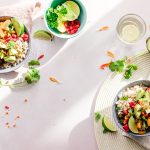If you have considered going vegan, you might have found yourself asking these questions: How do vegans get protein? How does vegan protein compare to animal-based protein? How much protein do vegans and vegetarians need? Well, this guide for vegan protein sources is for you! You will learn all about the best protein sources for vegans, protein for weight loss, and more. THIS RECIPE
When I went fully vegetarian over a decade ago (!), I really had no idea what I was doing. I had flirted with meatless meals for years before that, but it wasn’t until a really bad breakup (and the self-love/healing that comes after) that I settled into my groove.
As you know, while I am a passionate vegetarian, I also understand that everyone is on their own path. I celebrate everyone who comes to this space: those looking to find their happy weight, those needing a quick dinner recipe, and those interested in the idea of vegetarian or vegan living.
Therefore, I’m beaming with excitement to introduce you to this new series: How To Vegetarian.
How To Vegetarian: New Health Series
For the next five months, I’m going to explore all aspects of vegetarian nutrition; from essential nutrients, meal ideas, sports nutrition, and more.
We are going to:
- De-bunk myths
- Fact-check some crazy info that’s floating around out there
- Dive deep into the world of vegetarian and vegan nutrition
So, whether you are a flexitarian, omnivore, vegetarian, or a full-on vegan, this series is for you!
So, How Do Vegans Get Protein?
It’s almost comical. Tell someone you are a vegetarian or vegan and almost immediately, you’ll hear concern over protein intake. And, while I’m quick to laugh it off, I understand why this is the first thing we think about when we consider a plant-based diet.
We are a culture obsessed with protein.
I’m not sure who exactly started the protein revolution (Atkins, South Beach, the Fitness Industry, Paleo?) but, it’s out there. Even my clients who come to me with very little understanding about nutrition want to know about vegetarian and vegan protein sources.
So, what exactly is this magical macronutrient? Let’s start off with a quick reminder of what protein does in the body (and what it doesn’t do).
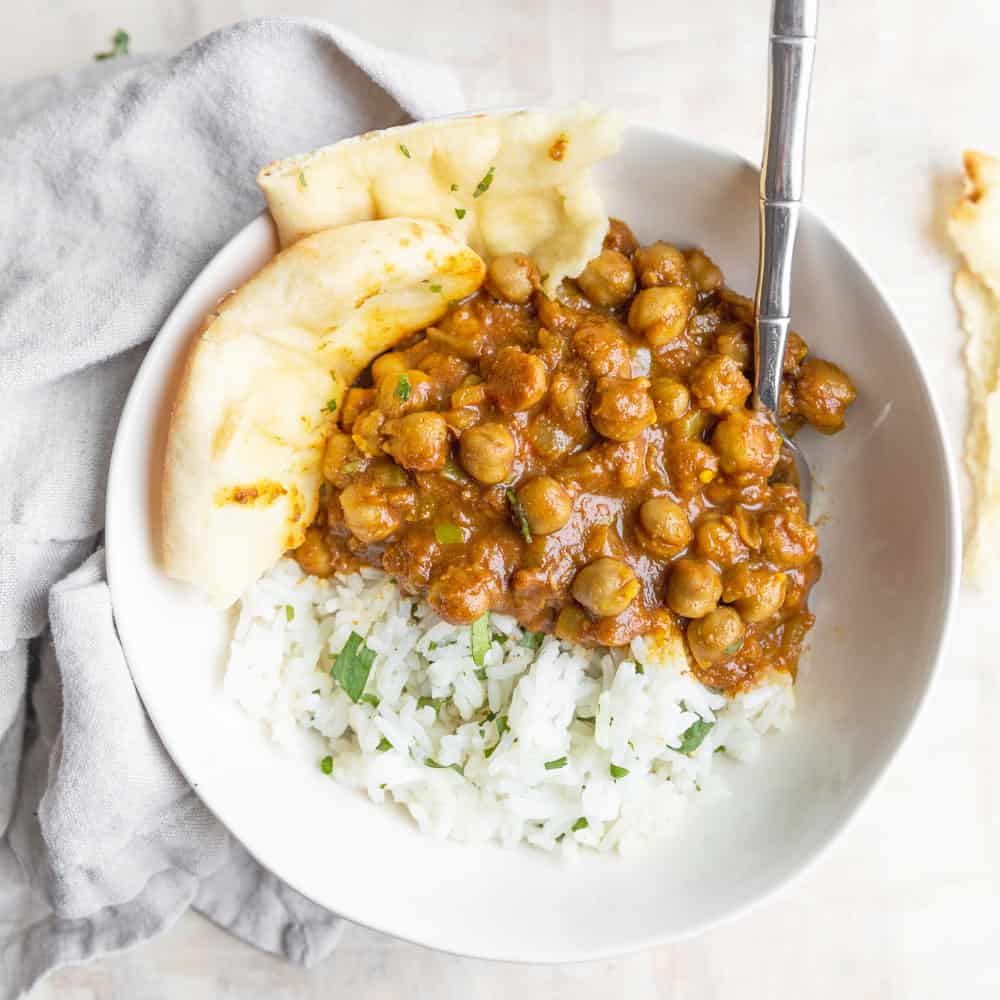
What Is Protein?
Protein is a component of every cell in the body; take a look at your nails and hair- they are made almost entirely out of protein.
In addition to building and repairing tissues (hello, muscles!), you need protein to make enzymes and hormones. It’s also a building block of bones, cartilage, skin, and blood. Protein will not make you lose weight (more to come), give you a six-pack, or increase muscle mass (without hitting the gym first)…
We need protein- we just don’t need as much as we think we do.
I’ve been analyzing diets on a daily basis for almost 9 years straight. Only a handful of times, even in counseling hundreds of vegetarians and vegans, have I ever seen someone who is protein deficient (and those are usually my under-nourished, raw-foodies).
I’m not saying it’s impossible, but in our protein-focused world, it’s very, very unlikely. (We should be much more focused on getting enough fiber, but that’s another post).
How about if we change the word protein to amino acids, the building blocks of protein? If we consider that all foods contain amino acids (even plant-foods), it’s easier to see that while some foods contain more amino acids than others, we are still getting amino acids in just about every food we eat. Even kale!
I start there because I want to assure you that you are probably getting enough protein amino acids. Even though many weight loss books/diets will promote more, more, more- added vegetarian or vegan protein sources alone aren’t going to change your body composition.
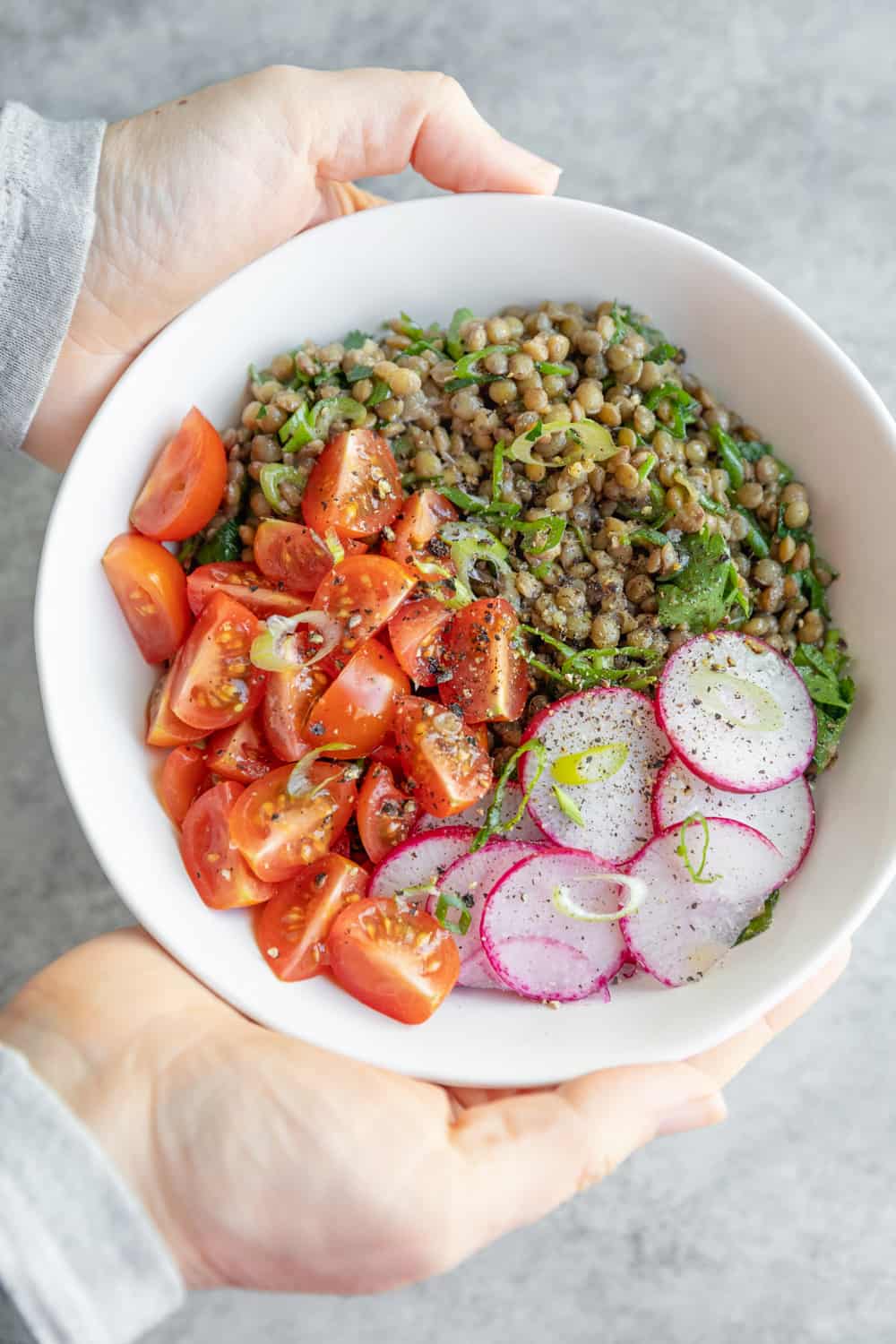
Will Eating More Vegan Protein Sources Help You Lose Weight?
It’s common weight-loss advice (at least on the internet/popular magazines) that, in order to lose weight, you need to bump up your protein intake.
Kinda wrong, kinda right.
Of all the macronutrients (nutrients that provide energy in the form of calories: protein, fat, and carbohydrates), protein is the most satiating.
That’s just a fancy way of saying that, if you eat more protein at a meal, you will likely feel more satisfied for longer.
That’s a big deal in the weight loss world where a decrease in caloric intake usually means a shift in hunger and fullness levels. Ensuring protein at every meal (and snack) will increase satisfaction and hopefully, decrease the desire to overeat.
While satiation is important in weight loss, it’s not the only factor. Adding in amino acids in any variety will work- you don’t need to overload your plate with too much protein to get this effect.
Fiber, like fruits, vegetables, and whole grains will also increase satiation as will a little bit of fat!
Consider Calorie Intake When Eating Protein
Second, adding in more protein than you need also adds in more calories than you need. While weight loss is not only a direct calorie game, we have to consider calorie intake when we discuss weight loss.
You will gain weight eating nothing but protein as protein still contains calories (4g/kcal). It’s a myth that excess protein is simply excreted.
If your body does not need the additional amino acids you are taking in, it can easily store them as fat.
Just a fun fact I wanted to share with you!
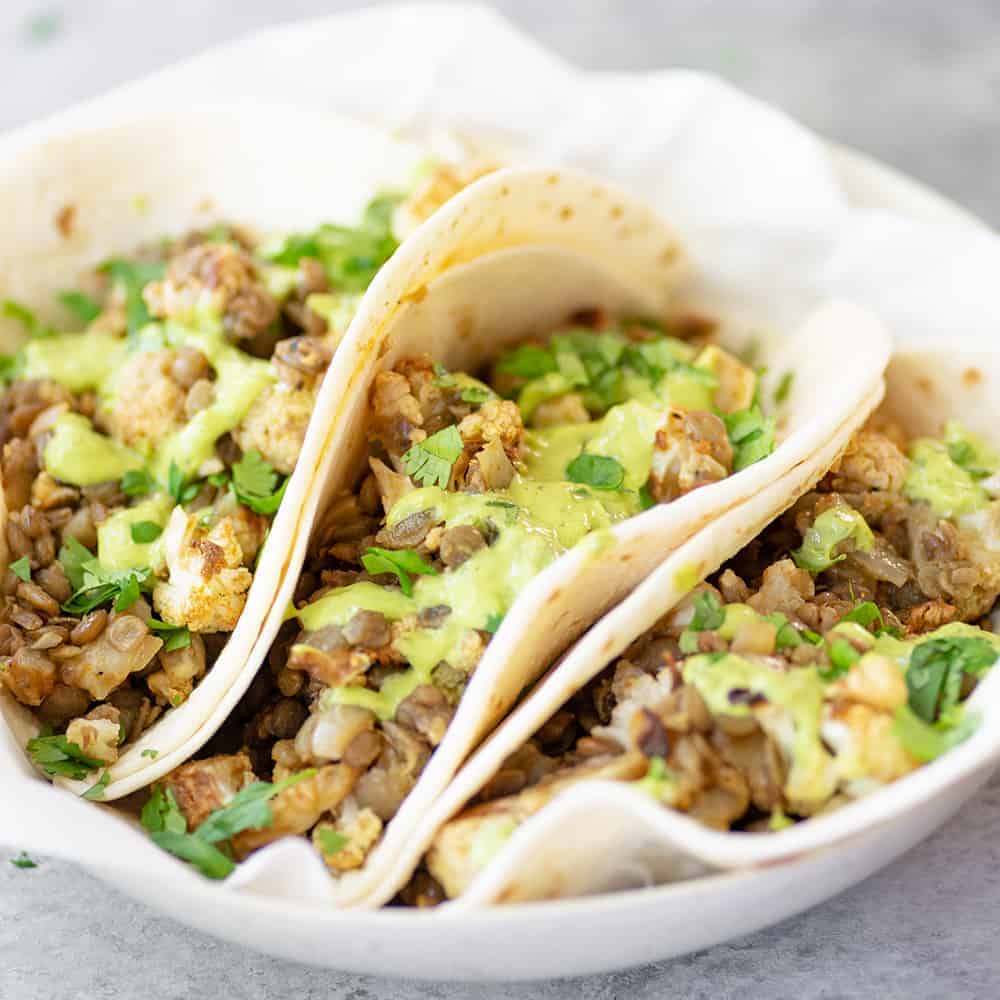
How Much Protein Does A Vegetarian Or Vegan Actually Need?
According to the DRI (Dietary Reference Intake), it is 0.8 grams of protein per kilogram of body weight or 0.36 grams per pound.
Even at a fairly conservative number, this equates to about 56g of protein per day for the average guy, 46g for the average woman. If you were to add up how much protein you eat in a day, I would bet that you get almost double that amount.
At least, that’s the norm for my clients who are mostly omnivores and vegetarians.
For my active friends, bump that number up to 1.2-1.4g/kg for endurance athletes (.54-.63g/pounds) and 1.4g-1.8/kg for strength athletes (.63-.81g/pound).
Even with those increased demands, we are still only talking 80-95g per protein per day. Yes, you will have to make sure that you are getting protein in, but that’s still a very manageable number.
The “Challenge” Of Getting The Necessary Amino Acids in a Vegetarian Diet
Somewhere along the way, a vegetarian and vegan diet also meant that it was a “challenge” to get in the necessary amino acids. There is some truth to this, although it’s largely false.
Animal proteins are considered a complete protein, meaning that they contain all of the essential amino acids that we need. Makes sense as animal tissue is similar to human tissue. Plants then are commonly called incomplete amino acids as they are lower in one or more of the essential amino acids needed in our diet.
For a long time, nutrition science told us that we had to combine certain plant foods in order to get a complete protein. I was even taught this in school and vividly remember writing down my meals in a notebook to make sure I was getting all of the required amino acids…
Then, we learned more!
We realized that as long as you are eating a varied plant-based diet, you are getting all of the amino acids, in amounts needed, even if it’s not at the same meal. So, if I have oatmeal for breakfast, a gorgeous salad with beans for lunch, an apple and peanut butter for a snack, and quinoa, tofu, and veggies for dinner, I am getting everything I need- no counting required!
So, while it was originally thought to be more challenging to get enough protein on a vegan/vegetarian diet, as long as you are including quality sources, you are OKAY.
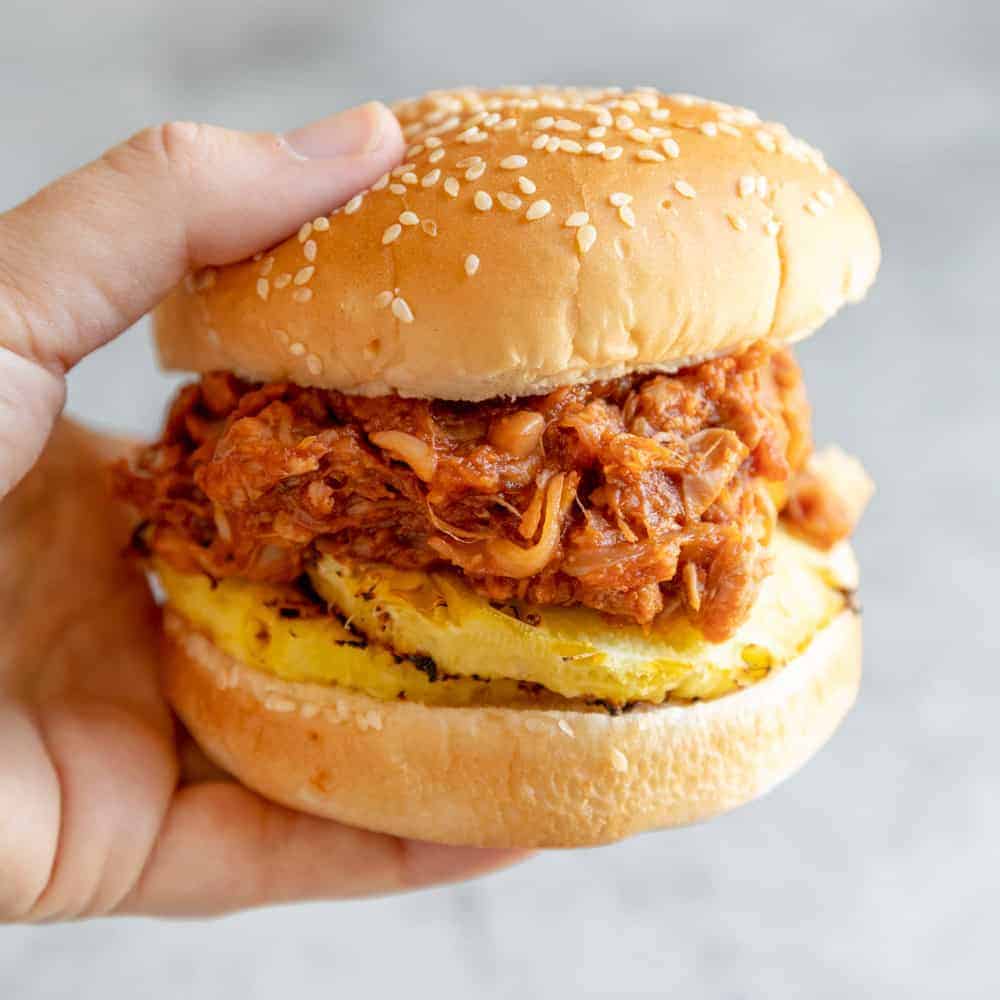
What Are Some Plant-Based Or Vegan Protein Sources?
I’m a big fan of quality eating, no matter what macronutrient we are talking about. It’s also why I think vegan protein sources have a leg up; they are usually of higher quality.
We don’t eat in a protein vacuum. All foods are going to contain other nutrients (either micro, macro, fiber, antioxidants, etc.) that we have to take into consideration. When I eat a cup of lentils, not only am I getting 18 grams of protein, I also have the benefit of 16g of fiber and almost zero fat. Contrast that with a similar amount of chicken which contains zero fiber, fat, and cholesterol.
Recommend Vegetarian and Vegan Protein Sources
Because of those stats I just mentioned above, I believe that everyone- plant-based or not- should eat more quality vegetarian and vegan protein sources like:
- Beans
- Lentils
- Tofu
- Tempeh
- Nuts and seeds
- Grass-fed dairy protein (for vegetarians)
Eating these foods gives you more of the good stuff- protein included!
Dairy Protein Sources
My diet is fairly low in dairy but, when I do consume it, I want to make sure I’m getting the biggest bang for my nutrient buck. Since I don’t eat much of it, I can justify consuming organic and/or grass-fed varieties over the conventional kind.
Grass-fed dairy makes a difference in the omega-3 department, containing up to 5 times as much Omega-3 as grain or corn-fed dairy.
This Is How Much Protein I Aim To Eat Every Day
If we take the above recommendations into mind, at 130 pounds and fairly active, I aim to get 65-70g per protein per day.
- 20-25g at dinner (my largest meal)
- 15-20g at lunch (second largest meal)
- 10-15 at breakfast
- 10-15 divided up among my snacks
Everyone is different so make sure you take into account everything that was mentioned in this post when calculating how much protein you should include in your daily diet.
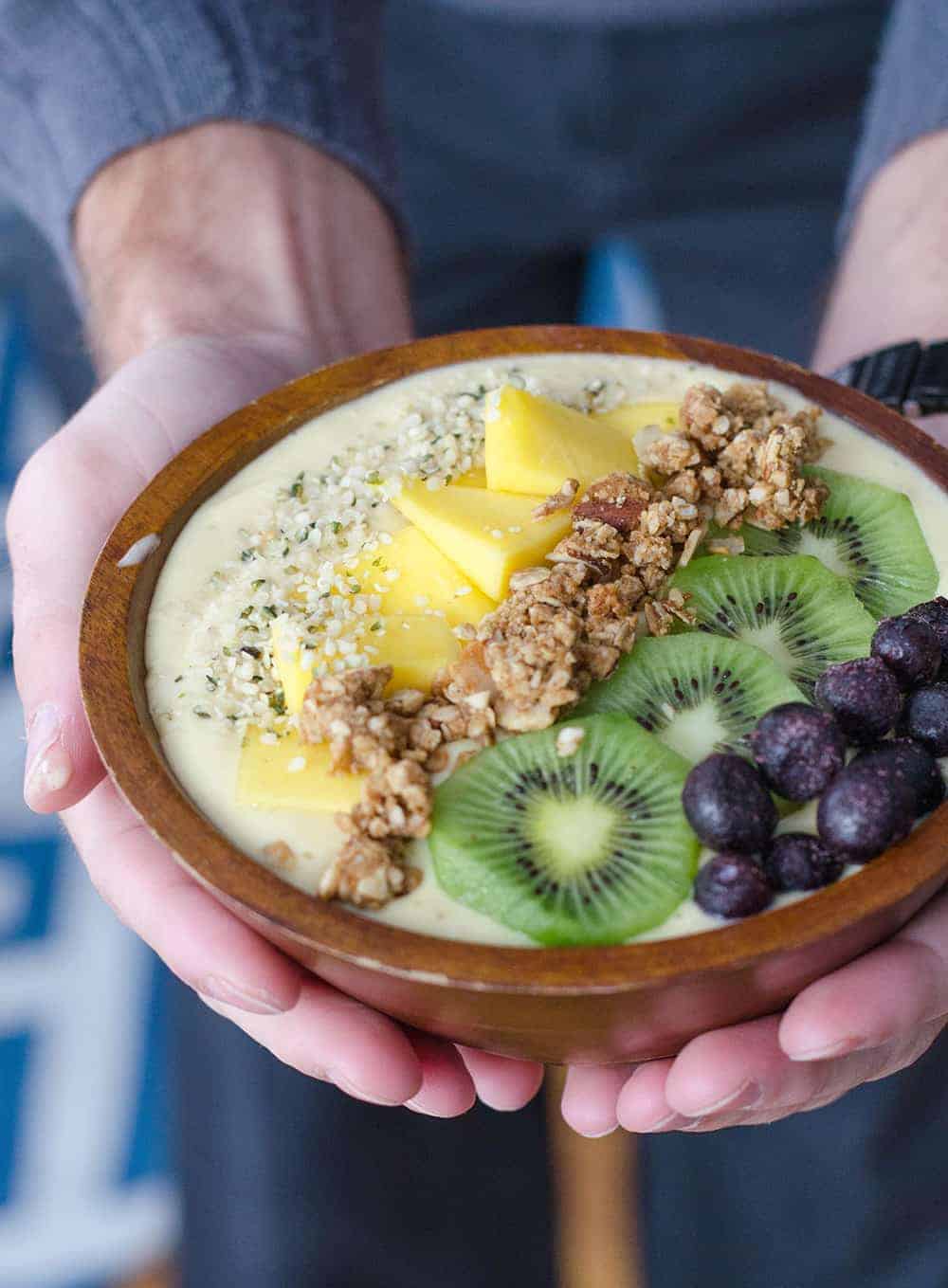
My Favorite Vegan Protein Recipes
Now that you have all the info on vegetarian and vegan protein sources, I wanted to share some of my favorite recipes chock full of yummy protein.
Breakfast
I’ve talked about my love of smoothies (and smoothie bowls) for breakfast so often that I’m starting to sound like a broken record. They are my perfect vegan protein breakfast option!
Did you know that rolled oats contain 11g of protein per cup? A bowl of oatmeal or my favorite baked oatmeal is a perfect protein-rich way to start the day.
I’m also a big fan of higher protein sprouted bread with peanut butter and chia seed jam, for additional omega-3 fatty acids.
Lunch
My lunch is usually my second biggest meal of the day (dinner being the first) so, I try to make sure I am able to fit in enough protein to meet my daily numbers.
Lately, I have been enjoying this Tempeh BLT for a quick and easy lunch sandwich. It has a spicy mayo with leafy arugula, apple slices, and smokey homemade tempeh bacon. Delish! I also like to pair it with this Vegan Black Bean Soup to have a satisfying lunch.
Dinner
For dinner, I like to make hearty meals to round out a great day. Being my biggest meal of the day, I like to cook up recipes like this Vegan Lentil, Potato, and Sausage Stew. I used vegan sausages and lentils as my main vegan protein sources with some added baby potatoes. It’s very wholesome and perfect for those colder months.





